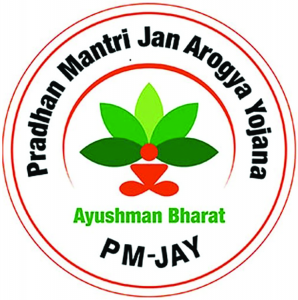Pending Ayushman Bharat dues hit patients, pvt hospital

MANOJ KUMAR JENA, OP
Bhubaneswar: Beneficiaries of Ayushman Bharat–Pradhan Mantri Jan Arogya Yojana (AB-PMJAY) are facing difficulties in availing healthcare services at private hospitals across the state as a staggering Rs 2,034.6 crore dues is pending on the government. After the fall of BJD government in the state, the BJP replaced Biju Swasthya Kalyan Yojana (BSKY) with AB-PMJAY in April 2025 which promises health insurance coverage of Rs 5 lakh per family per annum. However, beneficiaries under this scheme have started experiencing issues since then.
Several patients alleged they are unable to access services at private hospitals that were earlier available under BSKY. Some alleged that they are being asked to pay for treatments which were previously available for free. This compels them to seek treatment elsewhere, thereby increasing their financial burden. Pramod Kumar Das, a renal cancer patient from the Capital City who is currently undergoing treatment at AIIMS-Bhubaneswar, said that treatments such as immunotherapy and chemotherapy were accessible under BSKY but are now unavailable under Ayushman Bharat. “Under Ayushman Bharat, I was sanctioned two therapies, but last month the hospital refused to provide the treatment, saying the government is no longer sanctioning immunotherapy under this (AB-PMJAY) card,” he said.
Similarly, a relative of another cancer patient said, “Previously, my sister received all the facilities under BSKY. But after the rollout of the new scheme, we faced several issues. We had to avail paid chemotherapy, and later the hospital neglected the patient, forcing us to shift her to another hospital where we availed paid treatment.”
Meanwhile, private hospitals have expressed dissatisfaction over capped package rates and long delays in reimbursement, which they say are making it difficult to provide quality care without passing costs onto patients. Reports suggest that bills to the tune of Rs 1.21 lakh crore remain pending at the national level, while Rs 2,034.6 crore owed to 40 private hospitals in Odisha has been pending since the last quarter.
As a result, many private hospitals in the state have either curtailed or denied treatment under AB-PMJAY. Indramani Jena, director of Hillside Nursing Home in Bhubaneswar, said, “It was mentioned in the MoU that dues would be cleared within a month. However, we have not received reimbursement even after four months. Since we are running a private hospital, we cannot continue like this. We have stopped providing services under Ayushman Bharat until the dues are cleared.”
Similarly, Debadatta Kumar Sahu, director of Shree Hospitals, said, “Apart from the payment issues, the scheme’s complex processes are creating confusion among patients. BSKY also had issues, but they were rectified immediately when we complained.
In case of Ayushman Bharat, the response is very slow. Though the scheme has its advantages, people are currently facing its drawbacks. We haven’t received any payments for the last four months. It is an uphill task for us to treat Ayushman Bharat patients with hospital funds. The government must clear the dues immediately and bring in reforms to the scheme.” Ashwini Group of Hospitals chairman Subrat Kumar Jena said, “The long-pending dues are creating serious problems for private hospitals, and the low package rates in some cases have worsened the situation.
Running a private hospital involves multiple expenses, and managing them under these circumstances is really difficult. At the same time, it is our duty to attend to patients. We hope the government clears the dues soon.” Gouranga Mohapatra, convener of Jana Swasthya Abhiyan, emphasised the need for robust reforms to ensure smooth functioning of the scheme. “The government should clear dues on time to maintain continuity. A designated nodal officer, as existed in BSKY, should be appointed for proper functioning.
The technical systems must also be stabilised and lengthy procedures streamlined.” Moreover, there should be a clear grievance redressal mechanism for both patients and hospitals, Mohapatra added.
News